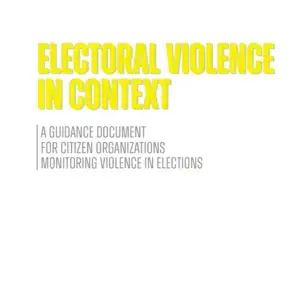While the organizational structure for elections has improved in Jordan, voter apathy remains widespread in advance of Jan. 23 legislative polls, according to a pre-election assessment by the National Democratic Institute (NDI).
While it may be too late for authorities to make major changes to increase voter confidence before election day, the assessment suggests a number of technical changes that could improve access and transparency for the upcoming polls and would set the stage for deeper reforms for future elections.
These elections mark the first in Jordan since the start of the Arab Spring. Although the elections will be administered by a newly-created Independent Election Commission (IEC) and carried out under a new election law, Jordanians across the political spectrum believe the outcome will likely be a parliament that is similar in composition to previous bodies, many of which have been deeply unpopular, the delegation found.
The assessment was carried out by an NDI delegation that visited Jordan from Nov. 4 - 8 at the invitation of the IEC, and met with government officials, representatives from the IEC, political party representatives, domestic election observers, civil society leaders, youth activists, journalists and members of the international community.
Based on these meetings, the delegation prepared a number of recommendations for both the IEC and the Jordanian authorities that can be carried out before election day and would contribute to greater confidence in the electoral process. The delegation’s recommendations included:
- Provide uniform, pre-printed ballots at the national and district level. Jordan remains one of the few countries that has not adopted a pre-printed ballot, and doing so would bring it in line with international best practices, as well as ensuring the secrecy of the vote.
- Use as many distinguishing features for candidates and party lists as possible on pre-printed ballots, such as names, numbers, pictures, symbols and colors. This helps illiterate voters cast their ballots as they intended.
- Encourage women’s inclusion in party list formation. The new electoral law raises the quota for women in parliament from 12 seats to 15, but it does not include any quotas or rules on including women on party lists. The IEC should consider issuing recommendations to those parties and individuals forming candidate lists to incorporate a voluntary quota.
- Institute financial disclosure regulations to help prevent voter fraud and limit the influence of political money.
- Institute a permanent staffing structure for the IEC, which is currently staffed by short-term employees. Hiring dedicated, long-term, independent staff would provide a strong foundation and underscore the IEC as an independent and impartial institution.
In issuing the statement and offering recommendations, NDI said it was not seeking to interfere in or render a final assessment of the election process. “NDI recognizes that it is only the Jordanian people that can determine the credibility of their elections,” the delegation said.
NDI is nonpartisan, nonprofit, nongovernmental organization working to support and strengthen democratic institutions worldwide through citizen participation, openness and accountability in government. The Institute has conducted more than 200 international election observer missions, including observation of elections in Algeria, Egypt, Jordan, Lebanon, Morocco, Tunisia and Yemen. For more information, visit www.ndi.org.




